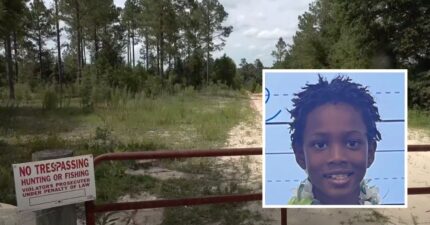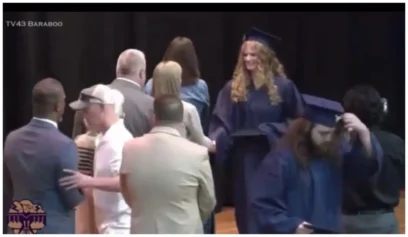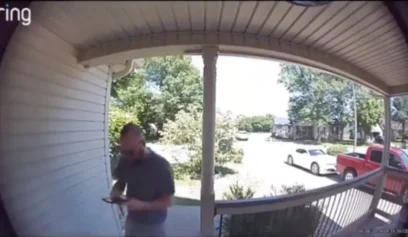TikTok sensation Akua Page is educating a new generation of social media users with her viral videos on Gullah Geechee culture by dispelling stereotypes and stigmas one video at a time.
Page, 28, is the creator behind the popular TikTok channel Geechee Godddess, and she’s using the social media platform to break down stigmas and stereotypes on Gullah Geechee culture and its people.
“Gullah Geechee people are descendants of Western and Central Africans who were stolen and kidnapped and forced to work on plantations in South Carolina, North Carolina, Georgia and Florida,” Page said.
Page’s TikTok channel has amassed more then 55,000 followers and her videos have been seen hundreds of thousands of times. TikTok, most popular with young people, especially Gen Z, are asking Page questions ranging from origins of Gullah language and Hoodoo medicine.
Unlike today’s young generation with unlimited access to information on their smartphones, Page says when she was growing up she learned about Gullah Geechee culture and her roots through the popular 1990s children’s sitcom “Gullah, Gullah Island.”
“Gullah, Gullah Island” premiered on Nickelodeon in October 1994, targeting young children. Natalie Daise, alongside her husband, Ron, were the lead stars on the program, which taught many life lessons and exposed children to Gullah Geechee culture through song and dance.
Daise says more than two decades later, she’s still coming to understand the impact the show had on young Black children, especially those of Gullah Geechee descent.
“I can only say, it’s taken this many years to realize the full impact of what we did,” Daise said.
Daise says she met Page three years ago and is proud of the work she is doing using TikTok to expose a new generation to Gullah Geechee culture. “I love the work she does for a new generation, the evolution of language and culture,” Daise said.
Page launched her TikTok channel educating her followers on Gullah Geechee culture during the COVID-19 pandemic. She says after spending years as a teaching assistant, using social media to teach Black history was a natural fit.
“I was already teaching people about the culture, utilizing YouTube, Instagram, and so TikTok was the perfect outlet when it came out to continue doing the work I was already doing,” Page said.
One of Page’s biggest fans is Victoria Smalls, who shares Gullah Geechee heritage and is the Executive Director of Gullah Geechee Cultural Heritage Corridor, a nonprofit on John’s Island in South Carolina.
“There are more Gullah Geechee people in America than just the people in the Gullah Geechee corridor, through the Great Migration, and other types of migration,” Smalls said.
According to the Gullah Geechee Cultural Heritage Corridor, the Gullah Geechee people are descendants of Africans who were enslaved, many of them coming from rice-growing regions of West Africa.
They were brought to the Southeast regions of the U.S., specifically North and South Carolina, Georgia, and Florida, to work on the coastal rice, sea island cotton and indigo plantations. The National Park Service says the Gullah Geechee Heritage Corridor extends from as far north as Wilmington, North Carolina, hugging the Atlantic coast, to as far south as Jacksonville, Florida.
“Gullah Geechee people are here today because their ancestors were enslaved because of their expertise knowledge of harvesting and processing rice,” Smalls said of the history of Gullah Geechee ancestry.
A 2005 report by National Geographic estimates around 200,000 people of Gullah Geechee descent are living in the U.S., and Smalls says many of them have spread across all parts of the country.
Within Page’s TikTok videos, she shares elements of Gullah Geechee culture, including arts, crafts, food, music, home remedies, and the language, which hasn’t always been celebrated.
“We’re changing the perspective how people are looking at the Gullah Geechee culture, because coming up when you call me Geechee that used to be fighting words, that used to be close to calling somebody the N-word back in the day, so I’m glad to let people know there’s nothing to be ashamed of being Gullah Geechee,” Page said.
Smalls says, historically, older generations would shy away from proudly displaying their Gullah Geechee heritage to avoid being stigmatized.
“Sixty-five and older, these are the people that were taught you don’t speak Gullah in mainstream society, at work, in school. Gullah was being educated out of them, either by their parents who wanted a better opportunity for them not understanding that Gullah language was something worthy of holding on to and was an actual language,” Smalls said.
“Growing up in Charleston, I really didn’t connect with my history, how I mentioned. At least through the school system, Geechee was something they tried to make us feel shamed about,” Page said.
Page says she is proud her TikTok channel has taken off the way it has and she regularly receives positive feedback from people full of curiosity about Gullah Geechee culture.
Going forward, in addition to her channel, she plans to continue offering Gullah Geechee tours in Charleston, South Carolina, highlighting historical landmarks related to Gullah Geechee people. She also hopes she can continue using her platform to strengthen unity among the Black community by offering more historical knowledge and perspectives.
“There’s been a lot of things to divide us, but just sharing my culture, it brings about unity within the Black diaspora,” said Page.


